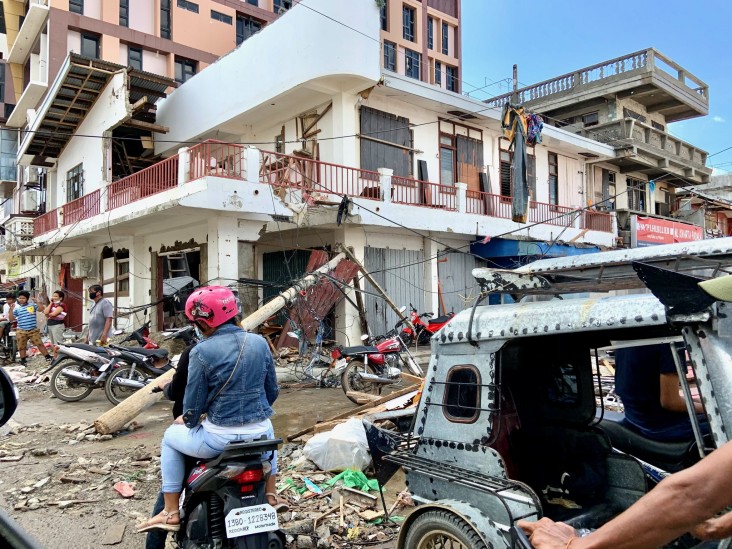- What We Do
- Agriculture and Food Security
- Democracy, Human Rights and Governance
- Economic Growth and Trade
- Education
- Environment and Global Climate Change
- Gender Equality and Women's Empowerment
- Global Health
- Humanitarian Assistance
- Transformation at USAID
- Water and Sanitation
- Working in Crises and Conflict
- U.S. Global Development Lab
Speeches Shim

Latest Philippines Disaster Map
Key Developments
Super Typhoon Goni—known locally as Super Typhoon Rolly—made landfall over the Philippines’ Bicol Region on November 1, 2020, as the strongest tropical storm to impact the Philippines during the year and causing widespread flooding and wind damage. The storm affected approximately 2.1 million people across six regions and caused at least 21 deaths, according to the Government of the Philippines (GPH). In response, the GPH coordinated emergency assistance, including search and rescue operations, evacuation services, and the provision of emergency relief items. Reports indicated that the GPH’s pre-emptive evacuation of more than 1 million people effectively limited the number of storm-related deaths.
On November 5, U.S. Chargé d’Affaires John C. Law declared a disaster due to the effects of Super Typhoon Goni in the Philippines. In response, USAID’s Bureau for Humanitarian Assistance (USAID/BHA) provided $200,000 in emergency funding for relief assistance in Bicol’s Albay and Catanduanes provinces. USAID/BHA also activated a six-person response team, with a Regional Advisor coordinating the response from the Philippines’ capital city of Manila and supported by disaster experts at the USAID/BHA regional office in Bangkok, Thailand, to monitor conditions and recommend response options in coordination with the U.S. Embassy in the Philippines.
Background
Situated on the Western Pacific typhoon belt and the fringes of the Pacific Ring of Fire, the Philippines is regularly affected by natural disasters that result in the loss of lives, homes, and livelihoods. Since 1990, USAID has responded to more than 40 disasters in the Philippines while also supporting a variety of disaster risk reduction programs to build the capacity of the GPH and communities to prepare for and respond to the impacts of natural disasters.
On May 23, 2017, the GPH launched a military and law enforcement operation against elements of ISIS-affiliated armed groups in Marawi. The ensuing conflict generated significant population displacement from Marawi and related humanitarian needs. Although displaced families began returning to areas of origin in Marawi following the government's declaration of the end of combat operations on October 23, 2017, damage and destruction of houses and infrastructure, unexploded ordnance contamination, and humanitarian needs persist. USAID/BHA has been supporting affected communities in and around Marawi since 2017 to meet their basic needs through food, protection, shelter, water, sanitation and hygiene, and other emergency assistance.

Comment
Make a general inquiry or suggest an improvement.